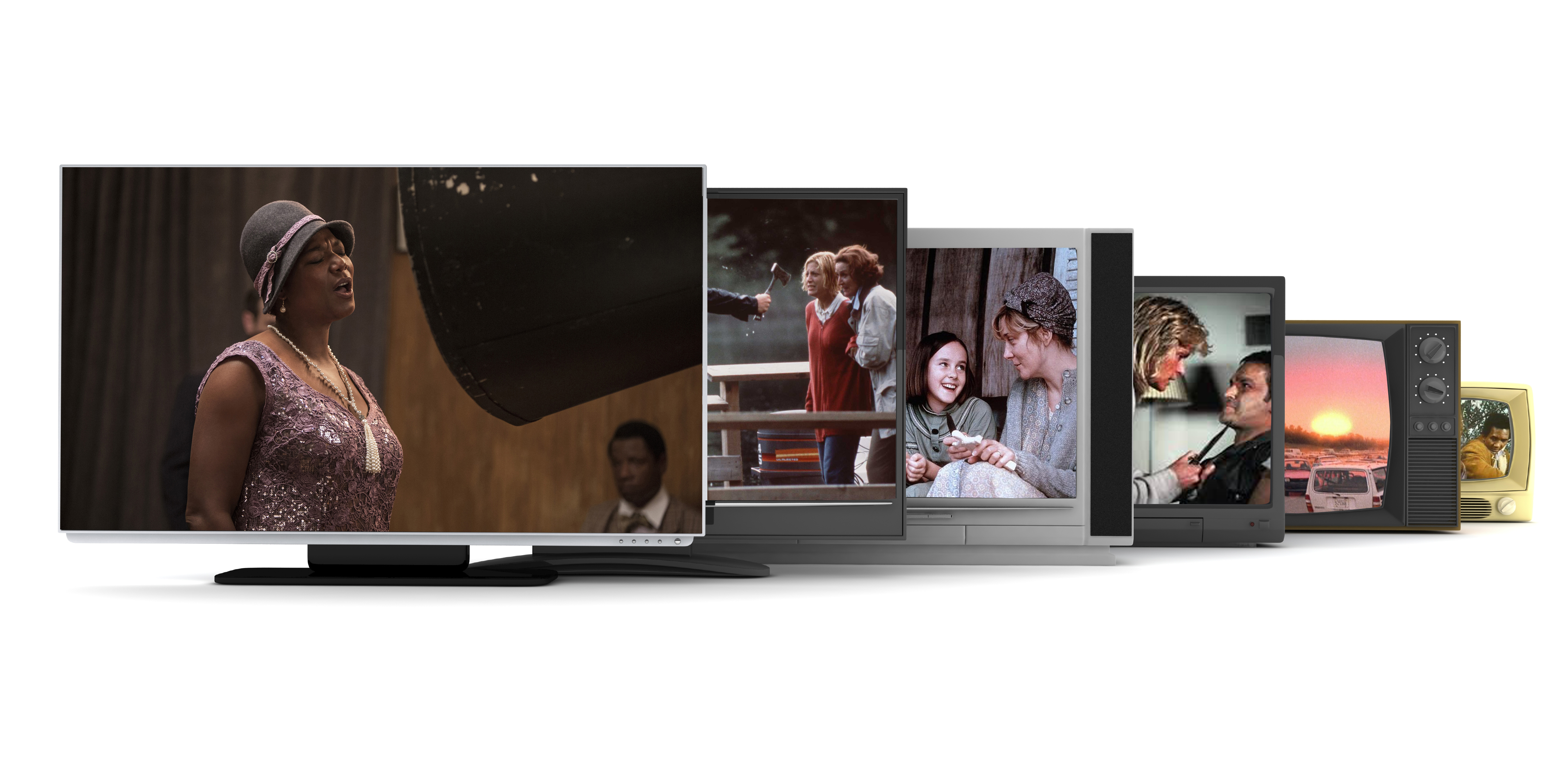The regrettable demise of the made-for-TV movie
Don't scoff. TV movies have been massively important in pushing the boundaries of American entertainment.


A free daily email with the biggest news stories of the day – and the best features from TheWeek.com
You are now subscribed
Your newsletter sign-up was successful
Midway through Bessie — director Dee Rees' made-for-television biopic of blueswoman Bessie Smith (Queen Latifah), which premiered on HBO earlier this year — the singer meets writer Carl Van Vechten (Oliver Platt) at a swanky New York party. A promoter of the Harlem Renaissance, the pasty, rotund novelist nonetheless "praises" black culture in the patronizing terms of the era's white, Northern liberals. Van Vechten misjudges his audience; the title of his new book, Nigger Heaven, doesn't sit well with Smith. She throws her champagne in his face, smashes the flute on the floor, and pillories the particular brand of racism that flourishes above the Mason-Dixon Line.
This is what's great about made-for-TV movies. They have long offered a (relatively) prominent platform to women, people of color, and LGBT people. They make way for voices, subjects, and styles too often excluded from the airwaves. They tell stories that don't often get told. And now, sadly, made-for-TV movies are dying.
The death has been a slow and protracted one. In 2001, National Public Radio TV critic Eric Deggans, then writing for the Daily Breeze, wondered if the "death knell" had sounded for made-for-TV movies. That year, the five major networks alone — ABC, CBS, NBC, Fox, and the WB — broadcast "only" 146 in 2000, down from 264 in 1996.
The Week
Escape your echo chamber. Get the facts behind the news, plus analysis from multiple perspectives.

Sign up for The Week's Free Newsletters
From our morning news briefing to a weekly Good News Newsletter, get the best of The Week delivered directly to your inbox.
From our morning news briefing to a weekly Good News Newsletter, get the best of The Week delivered directly to your inbox.
Things have only gotten worse since. This year, across every network — from Netflix to the Disney Channel — a grand total of 38 made-for-TV movies appeared on the Emmy nominations ballot, including The Weinstein Company's Grace of Monaco, which shuffled to Lifetime after being laughed out of Cannes.
Today, the very idea of a made-for-TV movie is often met with scorn. And yes, the TV movie's association with risible plotting and stiff performances isn't wholly undeserved — just the titles of Tori Spelling's 1990s output, including Co-ed Call Girl and Mother, May I Sleep with Danger?, are enough to send a shiver down the spine. But made-for-TV movies are so much more than that.
The TV movie, writes scholar Laurie Schulze, has long been "a privileged site for the negotiation of problematic social issues": interracial relationships (1970's My Sweet Charlie); nuclear proliferation (1983's The Day After); domestic violence (1984's The Burning Bed); abortion (1996's If These Walls Could Talk); sexual abuse (1996's Bastard Out of Carolina); homophobia (2002's The Laramie Project); and the AIDS crisis (2014's The Normal Heart), among many others.
TV movies are cheaper to produce than mid-range theatrical releases, ongoing TV series, or miniseries. They don't have the pressure to sustain an audience over the course of weeks, months, or years. And as a result, the TV movie is freer to court controversy — and, by extension, to feature perspectives from beyond the broad ideological center from which television largely operates.
A free daily email with the biggest news stories of the day – and the best features from TheWeek.com
The burst of top-tier original programming on cable networks, premium channels, and subscription-based streaming services allows for an ever-widening array of stories. But one side effect of the medium's transformation has been the winnowing of the resources devoted to the TV movie. With the rise of eight-, 10-, or 12-episode seasons, the renaissance of limited series like Fargo or True Detective, and the innumerable theatrical films available through sites like Netflix, the boundaries of the made-for-TV movie's distinctive niche appear increasingly blurry.
But the TV movie could be more culturally valuable than ever. In light of what Flavorwire's Jason Bailey describes as "the death of mid-budget cinema," fresh, surprising material is increasingly scarce, and traditional movie makers are increasingly skittish. So when all of the major studios passed on Behind the Candelabra — "They basically said it was too gay," said director Steven Soderbergh — the Liberace biopic went to HBO, which financed the film for $22.8 million. HBO has come to dominate the critical discussion of made-for-TV movies, but in years past, plenty of other networks have bankrolled important projects unlikely to receive backing elsewhere, from stage adaptations like The Heidi Chronicles (TNT, 1995) and A Raisin in the Sun (ABC, 2008) to intimate portraits like Georgia O'Keeffe (Lifetime, 2009).
Which brings us back to Bessie. It's just about impossible to imagine the film's electric, thoroughgoing investment in the black cultural and political movements of the Jim Crow era finding expression in even the most ambitious TV series, much less mainstream studio cinema. As writer/director Dee Rees explained to Indiewire's Liz Shannon Miller in May, four fallow years after her superb debut feature, Pariah:
I'm always choosing the hard things, the things that aren't easy. When you choose the hard things it takes longer than you think to get it done, and if you choose the hard thing and have a very particular way you want to do them and are uncompromising in that, then sometimes it takes even longer. [Indiewire]
It may be that the TV movie, in being so easily dismissed, is exactly the "hard thing" we need. They are often written or directed by and for those whose stories are all too rare in film and on television. As we reach "peak TV" and "prestige fatigue," TV movies are perhaps the last bastion of disruptive, unexpected populism.
Matt Brennan is a film and television critic whose writing has appeared in LA Weekly, Indiewire, Slant Magazine, The Week, Deadspin, Flavorwire, and Slate, among other publications. He lives in New Orleans and tweets about what he's watching @thefilmgoer.
-
 The ‘ravenous’ demand for Cornish minerals
The ‘ravenous’ demand for Cornish mineralsUnder the Radar Growing need for critical minerals to power tech has intensified ‘appetite’ for lithium, which could be a ‘huge boon’ for local economy
-
 Why are election experts taking Trump’s midterm threats seriously?
Why are election experts taking Trump’s midterm threats seriously?IN THE SPOTLIGHT As the president muses about polling place deployments and a centralized electoral system aimed at one-party control, lawmakers are taking this administration at its word
-
 ‘Restaurateurs have become millionaires’
‘Restaurateurs have become millionaires’Instant Opinion Opinion, comment and editorials of the day
